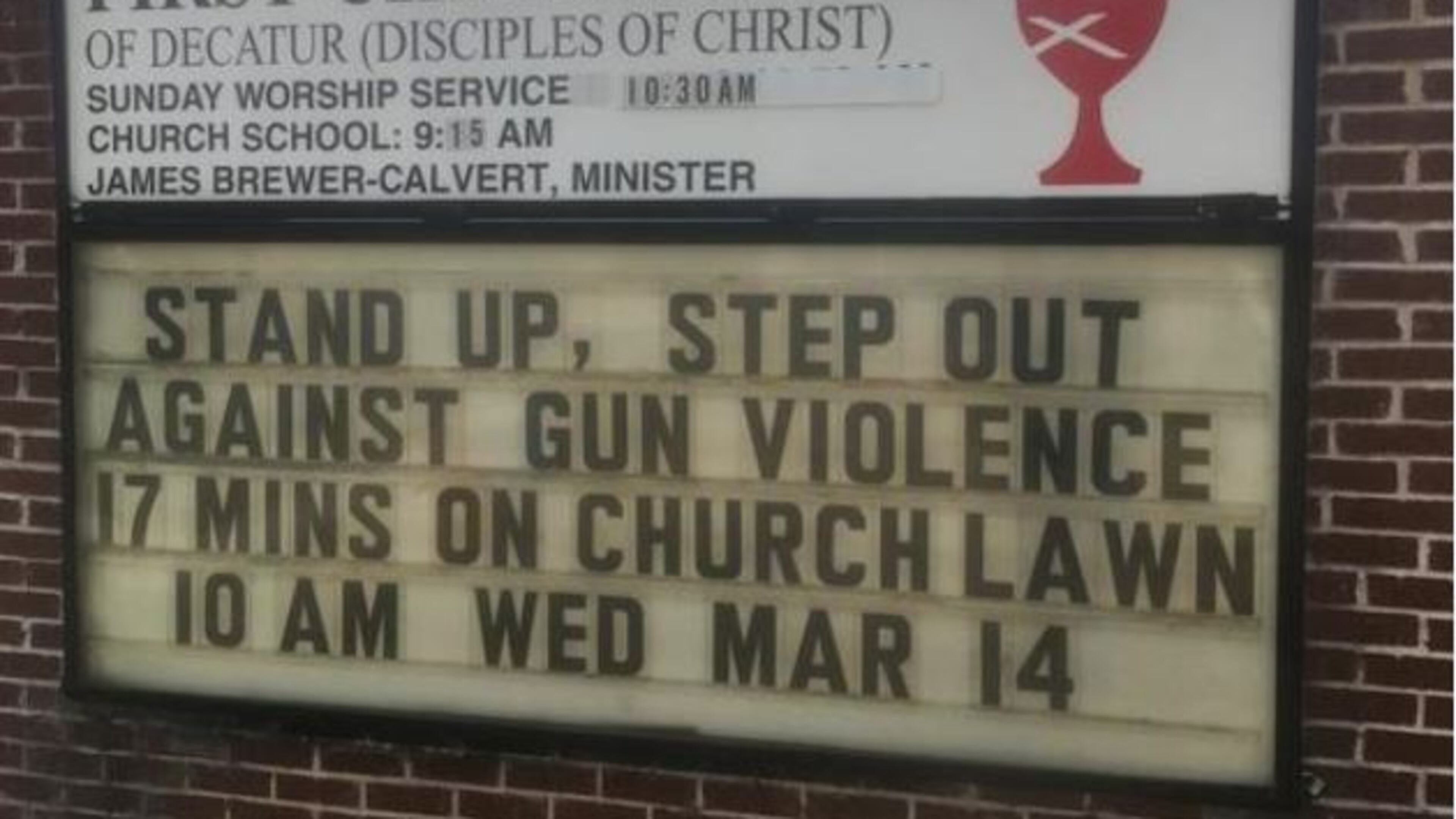Parents, churches plan to support student walkout tomorrow. Will you?

When thousands of Georgia students join classmates around the country in a walkout Wednesday, they will not be alone. Many metro Atlanta parents plan to be on hand, both as allies and guardians.
Some churches are heeding the call to ring their bells 17 times at 10 a.m., the start of the walkout, and will hold silent vigils.
Designed to be a unifying event, the national student walkout is also a polarizing one, with some people denouncing the students as immature and frivolous.
The point of the student-inspired walkout is to both honor the 17 victims of the Parkland, Fla., school shooting a month ago and highlight the need for new gun laws to prevent another mass shooting.
It’s offensive that these kids – who have grown up with active shooter drills and admonishments to take the practices seriously as their lives are at stake – should now be dismissed as silly.
These drills have not only created a siege mentality in our schools, which are supposed to serve as safe havens, but instilled fears in kids that their lives are in danger and that the killer may be among them.
In fact, the killer may be one of the students practicing the drills and thus know that kids are supposed to “shelter in place.” That may explain why Nikolas Cruz, the Marjory Stoneman Douglas shooter, pulled a fire alarm, sending hundreds of students spilling into hallways where they became targets.
Teachers are now asking what they should do when a fire alarm sounds – hold back to see if gunfire erupts or respond as instructed with rapid evacuation.
Imagine how adults – including those criticizing students for walking out – would respond if their workplaces routinely required they hide under their desks in the dark or squeeze into a supply closet because their employers feared a mass shooting could someday occur. And that the killer could be a co-worker at the next desk who will know exactly where to find them.
Workers would be furious the burden was shifting onto them to somehow survive a mass shooting rather than onto the company to prevent it in the first place.
As the Atlantic magazine pointed out in an excellent story on the psychological toll from active shooter drills:
Despite some similarities to natural-disaster and Cold War drills, active-shooter drills also mean exposing kids to the idea that at any point, someone they know may try to kill them. Zachary Levinsky, a lecturer in the department of sociology at the University of Toronto at Mississauga, is one of few academics who has studied active-shooter drills. He argues that though some school violence always existed, Columbine marked a shift of the burden of prevention: "Schools were somehow positioned as blamable—as responsible for these massacres." This created an institutional concern for reputational risk management. To implement something like an active-shooter drill was to signal to parents and the community that the school is being proactive—it was doing something.
In any case, preparedness drills always change the baseline level of risk that people perceive. This heightening can manifest as stress and anxiety, not to mention changing the way kids understand how people treat one another—to even consider violence an option, not in some abstract way.
The AJC shared a summary of school district policies regarding the walkout.
Atlanta Public Schools will let students participate, so long as details are coordinated with school officials. That will likely mean walkouts at 10 a.m., even though it may not be the most convenient time during a school day.
DeKalb County School District is encouraging students who want to demonstrate to do so in the early morning or late, but said students will not be disciplined for a "peaceful protest"as long as they remain on campus.
Fulton County Schools will allow students to participate in what officials described as a "structured time for the expression of support." The district will change its middle and high school bell schedules so the timing doesn't interrupt classes. Students who leave campus will be disciplined as they would on any other day. |Decatur schools may hold "optional, age-appropriate" events. The superintendent also noted that the student code of conduct prohibits walkouts, but said it's "not appropriate to pre-determine any consequences that may or may not be faced by students who choose to walk-out or encourage others to do so."
Cobb County said it would work with students to find other ways to express themselves that do not jeopardize safety or take away class time. A Cobb statement described such actions as a "demonstration of empathy" for Florida victims. Cobb said students who disrupt the school day "may be subject to consequences in accordance with the Student Code of Conduct." Gwinnett County will work with students to find other ways to express themselves that do not jeopardize safety or take away class time.



